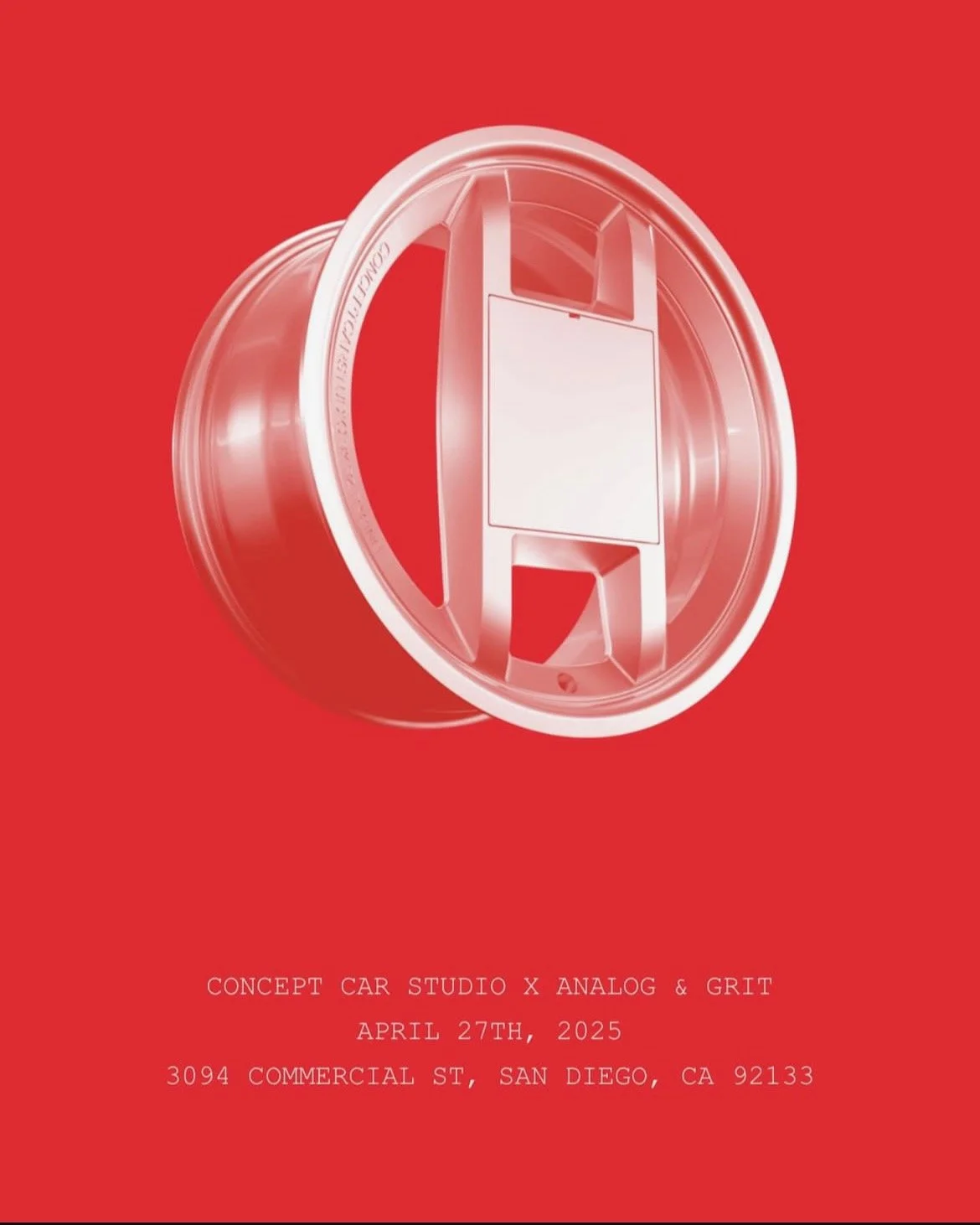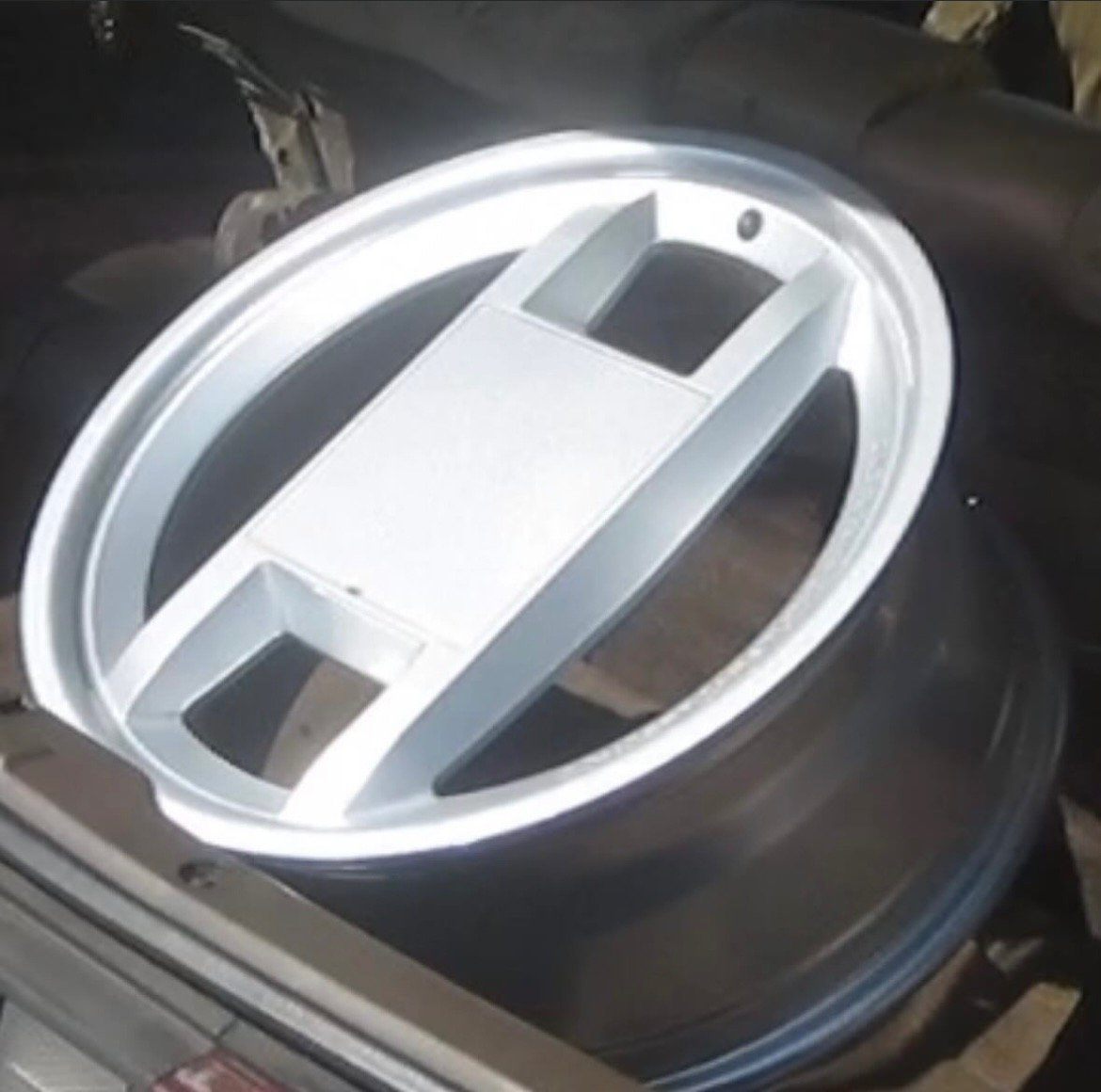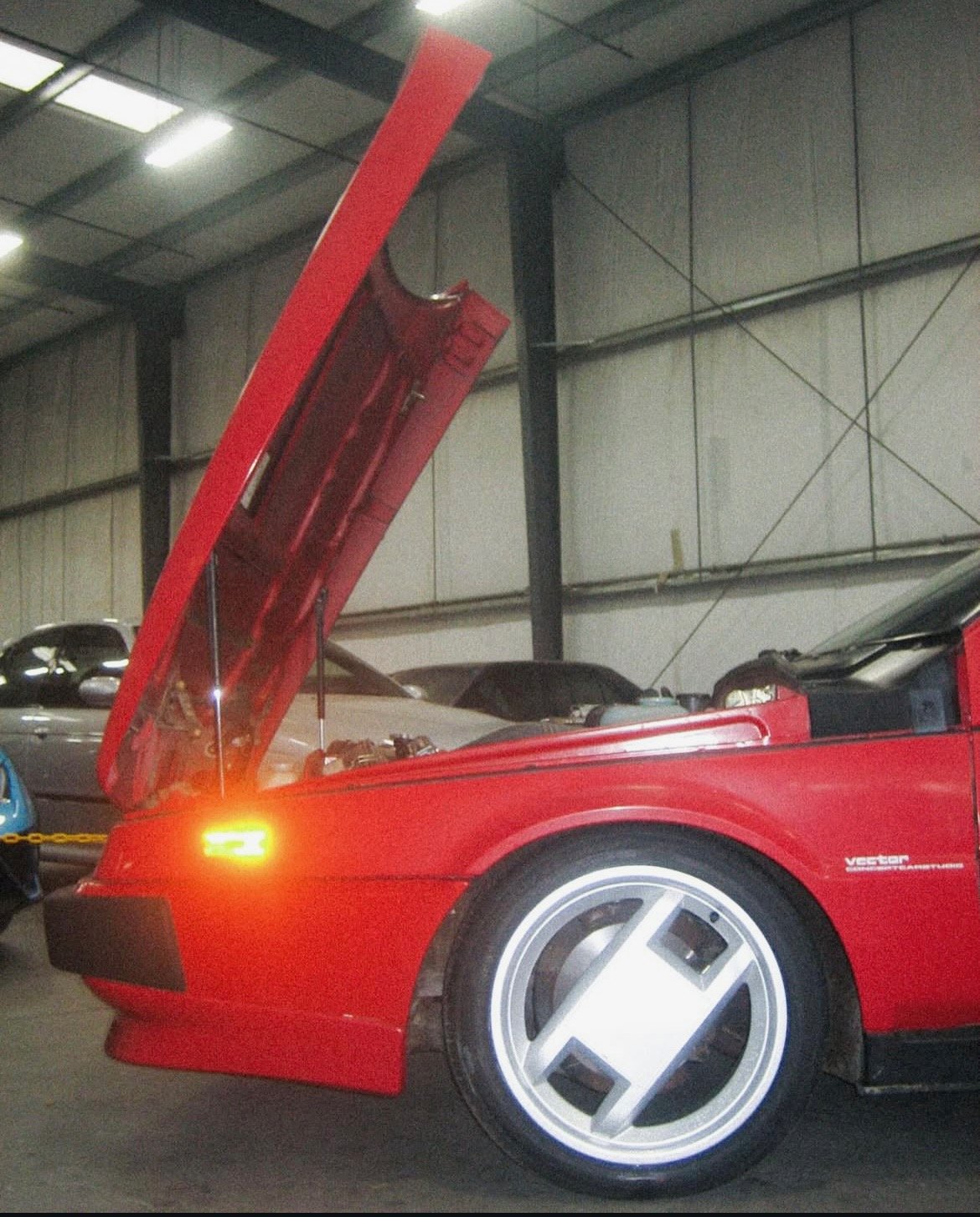The Vector Wheel: A Love Letter to the Wedge Era That Still Speaks to the Future
If you are an honor student at a design school, you might get hired by an OEM or design a 5 spoke that gets likes on Tik Tok, but if your E90 M3 has a Jiffy Lube sticker in the windshield, your wheel concept is probably more of a redesign than an original creation. I'm not certain what Concept Car Studio founder Brent Lawson's report card looked like, but his journey with the company is a compelling story of individuality, artistry, and true passion for automotive history. Since 2016, Lawson has used Concept Car Studio to build a network of artists and enthusiasts on the fringes of car culture, and focused on creating products that are intentionally niche, rather than garnering mass appeal. Over the years, Lawson has brought life to a number of beautifully original designs, some for big names in the automotive industry, others simply to showcase what he wants to see in the world. “The beauty of being an artist is it allows you to manage your own politics,” says Lawson. He has always defied convention, and treated his challenges as a source of inspiration. His goal is to dissect a car for each of its parts, go back to the drawing board, and create bespoke concepts which represent himself and others who are underrepresented in car culture. “The Vector” wheel, unveiled at Analog and Grit on a 1984 Isuzu Impulse is a manifestation of this idea.
Like many kids who are destined to be car enthusiasts but don’t know it yet, Lawson collected Hot Wheels from an early age. Some of his early memories include attending NHRA drag races, where he remembers feeling the raw, thunderous roar of top fuel dragsters as they blasted down the track. The Goodyear blimp was a familiar sight, and often flew over his childhood home, just down the road from Fontana Speedway, during NASCAR races. Lawson is well-acquainted with backyard barbecues and NASCAR playing on the television, but the first car to truly catch his eye was a neighbor’s Mulberry Red 1991 Accord wagon—nearly a twin to his father’s, yet heavily modified. After drawing cars for years and having the desire to design them from an early age, Lawson trained to become a mechanic before attending design school. Most mechanics have a love-hate relationship with engineers and designers—and there’s definitely room for a few jokes there. But that background gave Lawson an edge, helping him see beyond his design school peers who mostly spoke in automotive buzzwords. Around this time, Lawson couldn’t drive due to personal circumstances, forcing him to take an unconventional route toward his automotive dreams. But in the case of Concept Car Studio, those challenges ended up laying the foundation for a tight-knit team of equally driven car enthusiasts.
Before I go much further, allow me to introduce Rico Zhang. He’s an engineer… well, when Lawson wants to design a wheel that probably can’t be balanced. In all seriousness, “engineer” is more of a half sarcastic appeal to authority, because Zhang is so much more than that. Actor? Check. Car builder and drifter? Check. It's fair to say Zhang is a jack of many trades, but as someone with experience building custom wheels, his role is to tell Lawson NO when his brilliant imagination doesn’t directly translate to a well rounded design—no pun intended. “In this context, no is just the beginning of a conversation,” says Lawson, who works with Zhang to turn his vision into reality without taking half measures. “If someone tells me I can’t do something, I need to learn why it isn’t possible,” he says, so his artistic process and Zhang’s manufacturing experience push and pull against each other, creating a dynamic tension that ultimately brings their concepts to life. Concept Car studio is a passion project for Lawson and Zhang, and together, they represent enthusiasts, not industry interests.
The Vector wheel: it might split opinions harder than a group chat on pineapple pizza, but you can’t tell me it doesn’t belong on a Radwood-era car like it was born there. Those who admire the Isuzu Impulse echo this sentiment, many saying they thought it was the OEM wheel for the Impulse, before circling the car and discovering the 14 inch “waffle” wheel staring back at them. In my conversation with Lawson and Zhang on The Car Exchange Podcast, we explored a wide range of potential applications for The Vector—Lawson even pointed out several modern cars where it would look right at home. That's when it hit me! If The Vector was upsized and fitted to a Hyundai Ioniq 5, it would perfectly complete the cyberpunk vibe of the Ioniq’s exterior design language! Like The Vector wheel, the Ioniq 5 is polarizing, but those who love it would sign a blank check. All things considered, you could say The Vector has the potential to be timeless, and for those who don’t get it, that’s perfectly fine. After all, The Vector name is borrowed from the Iconic ‘80s supercar, the Vector W8—the poster child for wedge-shaped vintage glory. Much like The Vector wheel, the story behind the Vector car company stirs up some controversy, but if you’re lucky enough to spot one on the road today, good luck finding an ‘80s car enthusiast who doesn’t think it’s cool as hell.
In a space increasingly saturated with short-lived trends, viral posts, and mass-produced sameness, Lawson’s work is a reminder that car culture still has a heartbeat outside the algorithms. It’s not about who approves. It’s about who connects. Sometimes, the most impactful ideas are born in garages, sketched in notebooks, and shaped by people who didn’t take the traditional path. Lawson didn’t just want to design cars—he wanted to challenge the systems that shape them, while paying homage to historic icons. Whether or not you’d put a Vector wheel on your own car is beside the point—the real story is about a team that found a way to bring their dream to life, without asking for permission. That’s the kind of authenticity the car world needs more of.





